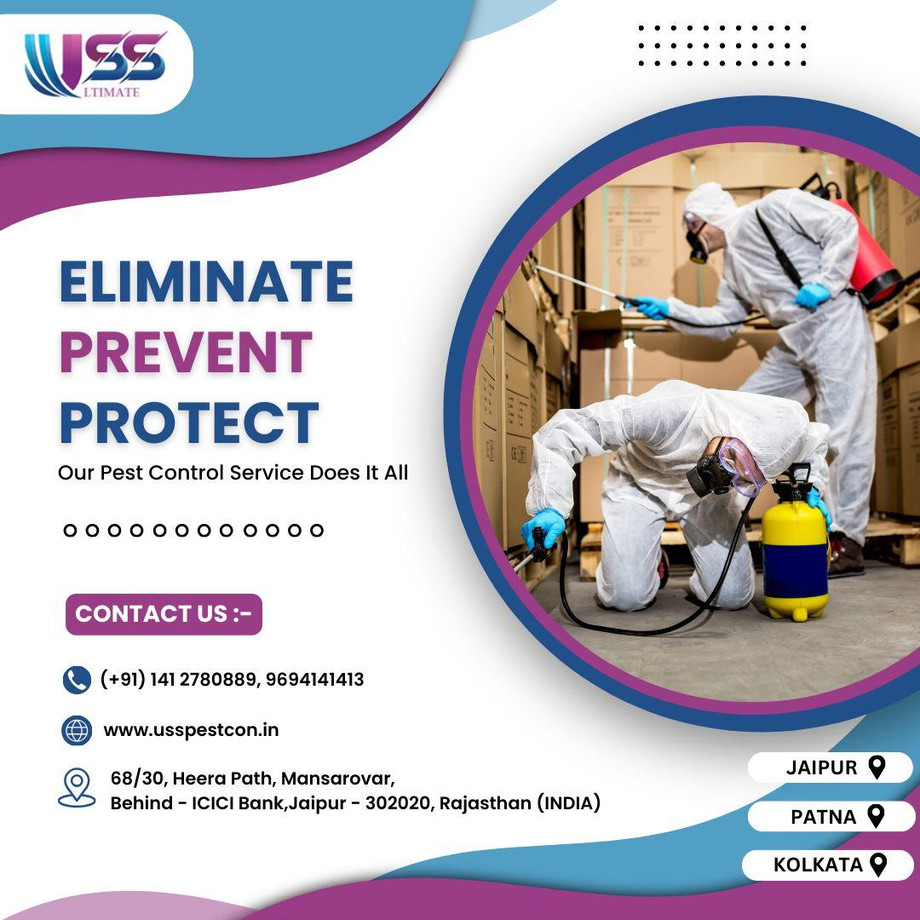Pest infestations are a common concern for homeowners and businesses alike in Jaipur, where the diverse climate and landscape create an environment conducive to various pests. To address this issue effectively and sustainably, an approach known as Integrated Pest Management (IPM) has gained prominence. IPM goes beyond pest control services in Jaipur, emphasizing a holistic and environmentally friendly strategy to manage pests while minimizing the impact on human health and the ecosystem.
Understanding Integrated Pest Management
Integrated Pest Management is a comprehensive and strategic approach that considers the entire pest control process. Rather than relying solely on chemical treatments, IPM incorporates a combination of biological, cultural, mechanical, and chemical control methods to achieve long-term pest management goals. This approach aims not only to eliminate existing pest problems but also to prevent future infestations.
Key Components of Integrated Pest Management
-
Identification and Monitoring: The first step in an IPM program is to accurately identify the pest species and assess the extent of the infestation. This involves regular monitoring to track pest populations and understand their life cycles. By knowing the specific pests present and their habits, bedbugs control in Jaipur professionals can tailor their strategies more effectively.
-
Cultural Control: Cultural practices involve modifying the environment to make it less conducive to pests. This can include proper waste management, maintaining cleanliness, and implementing landscaping practices that discourage pest activity. For example, in Jaipur, where certain pests thrive in humid conditions, proper drainage and ventilation can be crucial components of cultural control.
-
Biological Control: Emphasizing the use of natural predators, parasites, or pathogens, biological control is an essential aspect of IPM. Introducing beneficial organisms that naturally prey on pests helps maintain a balance in the ecosystem. For instance, releasing ladybugs to control aphid populations or using nematodes to combat soil-dwelling pests can be effective in Jaipur's diverse environment.
-
Mechanical Control: Mechanical methods involve physical barriers or traps to prevent pests from accessing a particular area. This can include sealing cracks and crevices, installing screens on windows, or using traps for monitoring and control. In Jaipur, where certain pests are prevalent in specific seasons, mechanical control can be customized to address seasonal variations.
-
Chemical Control as a Last Resort: While chemical control is a part of IPM, it is considered a last resort and used judiciously. When necessary, targeted and environmentally friendly pesticides are chosen to minimize harm to non-target organisms. Integrated Pest Management aims to reduce reliance on chemical treatments, promoting a more sustainable and responsible approach to pest control.
Benefits of Integrated Pest Management in Jaipur
-
Reduced Environmental Impact: By emphasizing non-chemical control methods and minimizing the use of pesticides, IPM reduces the overall environmental impact of pest management. This is particularly important in Jaipur, where the preservation of the diverse ecosystem is crucial for the region's overall health.
-
Cost-Effectiveness: While the initial implementation of an IPM program may require an investment, the long-term cost benefits are significant. By preventing recurring pest problems and minimizing the need for frequent chemical treatments, IPM proves to be a cost-effective approach for homeowners and businesses in Jaipur.
-
Preservation of Beneficial Organisms: Unlike traditional best pest control in Jaipur methods that can harm beneficial insects, IPM aims to preserve the natural balance of ecosystems. This is especially relevant in Jaipur, where agriculture and horticulture benefit from a variety of pollinators and natural predators.
-
Improved Public Health: The judicious use of pesticides in an IPM program reduces the risks associated with exposure to harmful chemicals. This is essential for public health in Jaipur, as residents can enjoy pest-free environments without compromising their well-being.
Conclusion
Integrated Pest Management stands out as a sustainable and holistic approach to best pest control services in Jaipur, addressing the unique challenges posed by the region's climate and geography. By integrating various control methods and prioritizing environmentally friendly strategies, IPM offers a promising solution for minimizing pest-related issues while promoting the overall health of ecosystems and communities in Jaipur. As the city continues to grow and face new pest challenges, embracing Integrated Pest Management can contribute to a healthier, more sustainable future.






